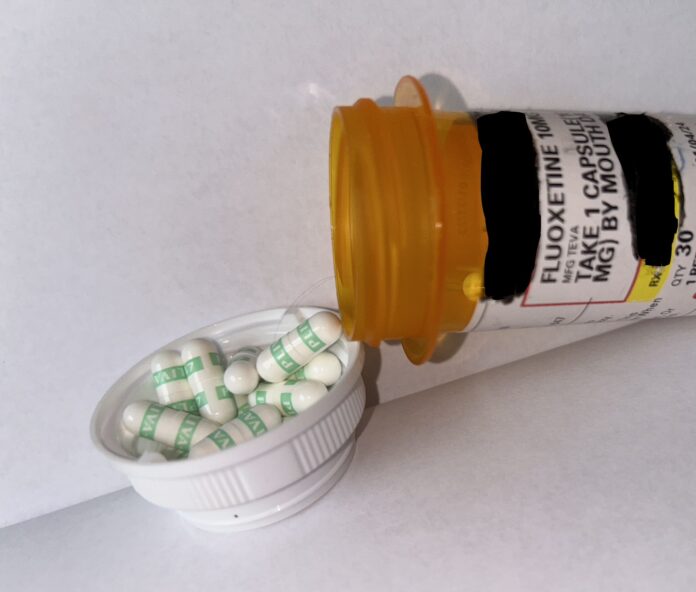State Delegates and children’s advocates disagreed whether a bill to require parental notification when any medication was prescribed to a minor for treatment of mental illness would cause harm.
Del. Timothy Anderson, R-Virginia Beach, introduced House Bill 1389, which initially stated that the minor’s parent or guardian would approve the use of controlled substances to treat a minor with mental illness.
Two House amendments were offered, but delegates passed the version that changed “controlled substances” to “any medication.” One suggested amendment was to change “controlled substances” to any selective serotonin reuptake inhibitor, or SSRI, according to the bill.
SSRIs, such as Escitalopram (sold under the brand names Lexapro and Cipralex) and Fluoxetine (commonly known as Prozac and Sarafem), are antidepressants used to treat depression and other mental illnesses, according to the Mayo Clinic website.
“The reason that I wanted to push that through is because the FDA has a black box warning on antidepressants, SSRIs and MAOIs, that says if you are depressed and you are a juvenile and you take these drugs, you may become more suicidal,” Anderson said.
The Food and Drug Administration warning on antidepressant drugs has been used since 2004, according to its website.
Currently, Virginia law permits minors ages 14 and older to consent to treatment of mental illness without parental notification, according to state code.
Anderson would want to know that his child was depressed, but also if they were prescribed a drug that could make them more depressed, he said.
“If my son were to go to the doctor with strep throat, and they would prescribe him an antibiotic, I would have to give consent for Amoxicillin,” Anderson said. “But if he goes to a doctor and says, ‘I’m depressed’ and the doctor gives him an antidepressant, I wouldn’t have even knowledge of it and that’s wrong.”
The medical community opposed the bill because of the possible danger a child seeking mental health treatment may face from their parent or guardian, Anderson said.
“We put a safety valve in the bill that said if a doctor is giving a child an antidepressant, they have to get parents’ notice unless the doctors believe that giving notice would put the child in danger,” Anderson said. “We still hit, just, tremendous resistance from the medical community.”
Virginia law allows doctors to “box” parents out of their child’s mental health treatment plan, Anderson said.
Although, parents would most likely be informed if their child was receiving treatment for mental illness “anyway” if they received the insurance company’s explanation of benefits, he added.
Voices for Virginia’s Children, a nonprofit organization, advocates for policies that improve the lives of Virginia’s children, according to its website. The organization opposed the bill, according to Emily Moore, policy analyst for Voices for Virginia’s Children.
“We’re currently in a youth mental health crisis,” Moore said. “The surgeon general has issued an advisory acknowledging this — mental health professionals, child psychiatrists have been sounding the alarm.”
Dr. Vivek Murthy was confirmed by the U.S. Senate in March 2021 to serve as the 21st Surgeon General, according to the U.S. Department of Health and Human Services website. The surgeon general is considered the nation’s doctor, according to HHS.
While data show the crisis started before the pandemic, it exacerbated the mental health crisis, according to Moore.
“A report came out from Mental Health America that places Virginia 48th in the nation for youth mental health,” Moore said. “A reason for that, one of the contributing factors, is access to mental health care.”
States with rankings 39 and higher indicate that youth have higher instances of mental illness and lower rates of access to care, according to Mental Health America’s 2023 report on the state of mental health in America.
“Youth deserve to have this autonomy, they deserve to be able to have a voice and a say so in their treatment and regarding what they specifically need,” Moore said.
While it is not necessarily harmful for parents to be involved in these situations, the organization wants to ensure that in every instance, a young person is able to speak to their own mental health needs and their own treatment plan, she said.
“It is possible that if young folks are not able to get the mental health treatment that they need, that there could be worse outcomes,” Moore said. “The biggest repercussion from this bill specifically would have been that it would have created a potential chilling effect.”
If a minor did not have a supportive home environment, they would not have been able to seek out the mental health support they needed, she said.
Psychiatrist Dr. Sherin Moideen opposed the bill on behalf of the Psychiatric Society of Virginia. “When we provide psychiatric care to minors, the standard of care is to involve parents or guardians,” Moideen testified to a Senate subcommittee panel on Feb. 14.
The bill isolated mental health treatment from a list of treatments that a 14 year old can already consent to, according to Moore.
The Senate Health and Education committee voted 10-5 not to advance the bill.
By Cassandra Loper / Capital News Service

